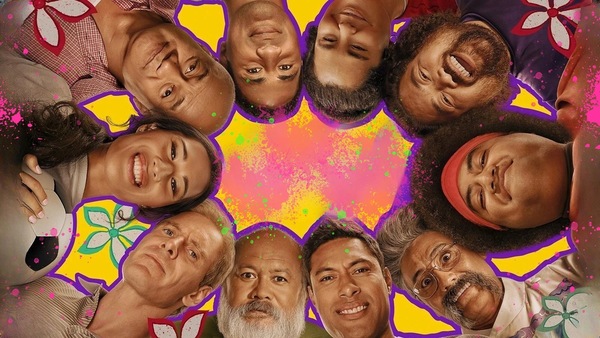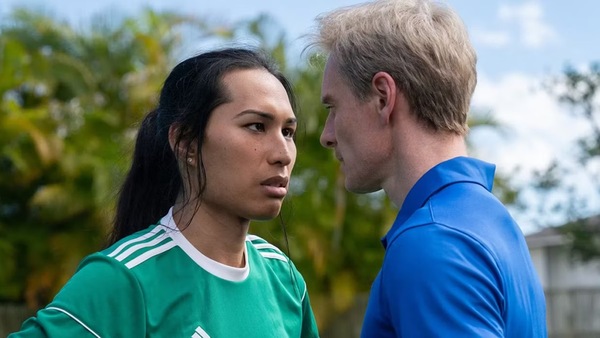Next Goal Wins: Taika Waititi’s Film Is Defeated By The Field Of Life
This is #CineFile, where our critic Rahul Desai goes beyond the obvious takes, to dissect movies and shows that are in the news.

Last Updated: 02.52 PM, Feb 09, 2024
WHEN Aamir Khan’s character Akash quipped “It’s hard to improve on perfection” towards the end of iconic Hindi film Dil Chahta Hai (2001), little did we know that he was perhaps delivering a prophetic reminder to film-maker Taika Waititi for something he’d attempt more than two decades later. But Waititi, being Waititi, paid no heed to soothsayer Akash. At times, it seems like he barely even listens to himself. So he still went on to make Next Goal Wins, which takes up the challenge of adapting the sheer perfection of Next Goal Wins, the 2014 sports documentary about “worst football team in the world” American Samoa.
I remember watching the documentary and marvelling at how something so real could feel so scarcely believable. You couldn’t come up with better underdog tropes and narrative symmetry if you tried. A washed-up foreign coach getting healed by the team he is hired to fix? A religious island of local misfits, including the first transgender player to compete in a FIFA World Cup qualifier? A torrid history of incompetence, featuring a record 31-0 defeat to Australia? A traumatised goalkeeper who plays video-games to avenge the 31-0 humiliation every day? A deep-rooted ambition to find the beautiful game at the heart of the ruthless sport? Directors Mike Brett and Steve Jamieson had designed life as a crowd-pleasing antidote and ode to fiction at once. In other words, some things are meant to be left alone. You can’t out-Hollywood a Hollywood story.

There’s also the inherent relationship between the screen and the viewer. A great documentary can often make for an average film, because we are conditioned to process the art of imagination and life very differently. For instance, an eccentric person might come across as a predictable movie character, and vice versa; the context — and lens — of watching it is the key. As a result, Waititi’s ‘dramatisation’ fights a losing battle from the very first frame. To those who’ve watched the documentary, the typically irreverent embellishments and kooky humour feel forced and unnecessary. To those who haven’t, it unfolds like a tropey and slight sports comedy that, on a better day, might have starred an early-2000s Adam Sandler. Seeing someone as intense as Michael Fassbender as Thomas Rongen — the blonde-haired Dutch-American soccer coach on a last-ditch assignment — takes some getting used to. He’s not the problem, though. This just isn’t the sort of real-life story that needs the Waititi stamp. If anything, his spoofy gaze — one that otherwise makes entire genres look like a parody of themselves — reduces Next Goal Wins to the lowest common denominator of itself. In some ways, it even trivialises the American Samoa story, culturally appropriating them and painting them as simpletons with hearts and spirits of gold. They all behave like slapstick caricatures that just happen to be real people.

The Taika quirk is torn between amplifying a documentary tone and satirising a fictional formula. For instance, the mandatory training montage on top of a mountain ends with Thomas wheezing and collapsing while trying to deliver an inspirational speech. The team-recruitment montage features Thomas finding a young talent only for the kid to be run over by a bus seconds later. A winning moment is not portrayed but narrated by a player to his heat-stroke-stricken father who missed the second half of the game. The multi-tasking Samoa federation boss flits between roles (cameraman to restaurant owner to football chief) as if he's in a doomed remake of 50 First Dates; the idea is to show the island folk as passionate and God-fearing at once, but the execution frames them as a bit of an in-joke on commercial cinema’s fraught relationship with indigenous American stories. Consequently, this jarring mix of softball irony and action plays out like an unwanted fourth season of Ted Lasso that has long outstayed its welcome. The emotional scenes — like Thomas breaking down during his halftime monologue, or accidentally referring to the young trans woman as his daughter — look like awkward interludes in the artificial feel-goodness of the film.

One of the charms of the documentary was its self-aware equation with plausibility — it understood the conceit of looking too good to be true. The film, however, sinks under the weight of that same plausibility, consumed by its very identity as a jazzed-up adaptation of something that already acted like it was adapted. Fassbender is funny in an assassin-written-by-David-Fincher sort of way, not a raging-mess-unwritten-by-Waititi manner. His tragedy is that he's leading a glorified end-credits epilogue of a remarkable documentary. Instead of the real life counterparts being revealed at the end of a film, it's the fictional counterparts that seem to be appearing during the closing titles of a doc. After all, the next goal isn't always the most important goal.
